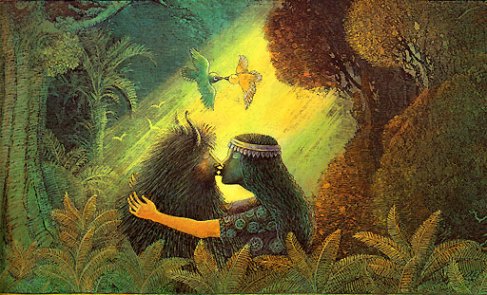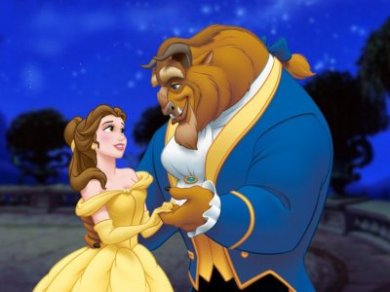Humbaba is the monstrous guardian of the Cedar Forest appointed by Enlil to protect it by terrifying men away. Gilgamesh’s desire for fame encourages him and Enkidu to enter the Cedar Forest in order to defeat Humbaba. He is a fierce monster that challenges the strength and courage of Gilgamesh due to his size. When the battle first begins, Humbaba charges towards Gilgamesh and Enkidu. However, with both Gilgamesh and Enkidu against Humbaba, he was at a disadvantage.
Humbaba appears pathetic in Book V because he states, “Gilgamesh, have mercy. Let me live here in the Cedar Forest. If you spare my life, I will be your slave, I will give you as many cedars as you wish.” At first, Humbaba was very intimidating but once he realized he couldn’t defeat Gilgamesh and Enkidu together, he begged for mercy. This immediately turns Humbaba into a “strange” villain. He transfers from a freightening and powerful monster to a pathetic villain. With these actions, he almost turns Gilgamesh into the villain because Gilgamesh would be the one doing the killing without any resistance from Humbaba.
Humbaba is important because you need a monster in order to have a hero. Humbaba was killed by Gilgamesh’s selfish motivation for fame and glory. With Humbaba dead and easy access to cedars, Gilgamesh can build infrastructure in Uruk that will aid his desired immortality and everlasting impression.
I feel that Humbaba’s death is appropriate because it helps the main character look and appear more influential and fierce. Gilgamesh needs enemies to defeat within the story to prove himself as king of Uruk. Although, I wish that Humbaba would have put up a better fight. He was portrayed as such a mighty warrior prior to the fight and then cowardly defeated by Gilgamesh.


